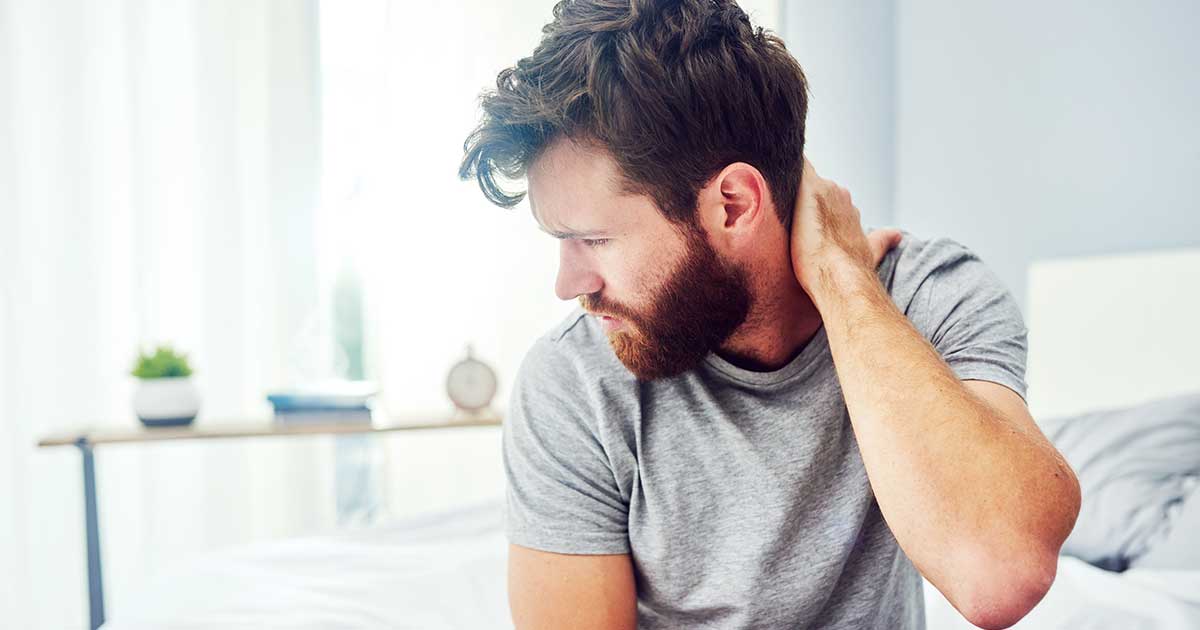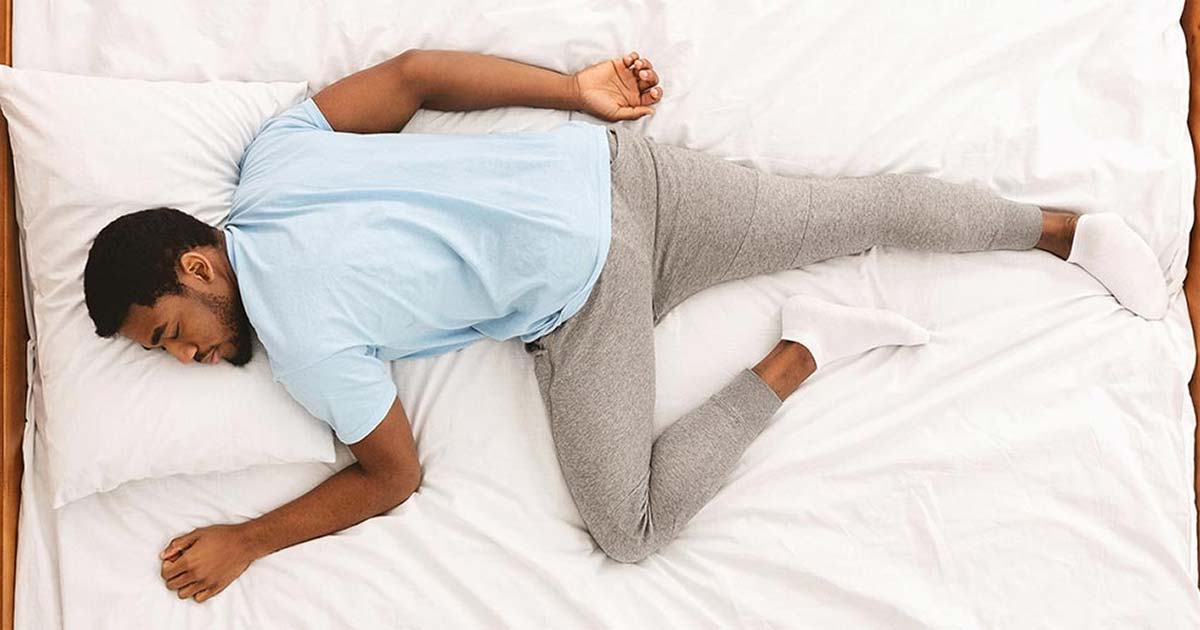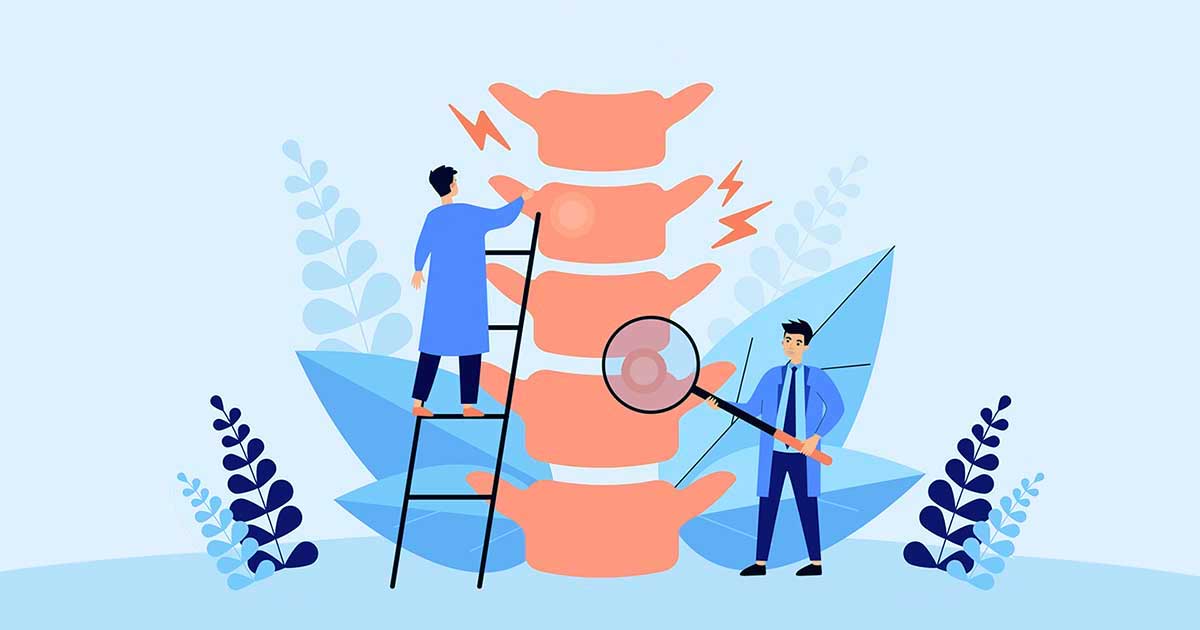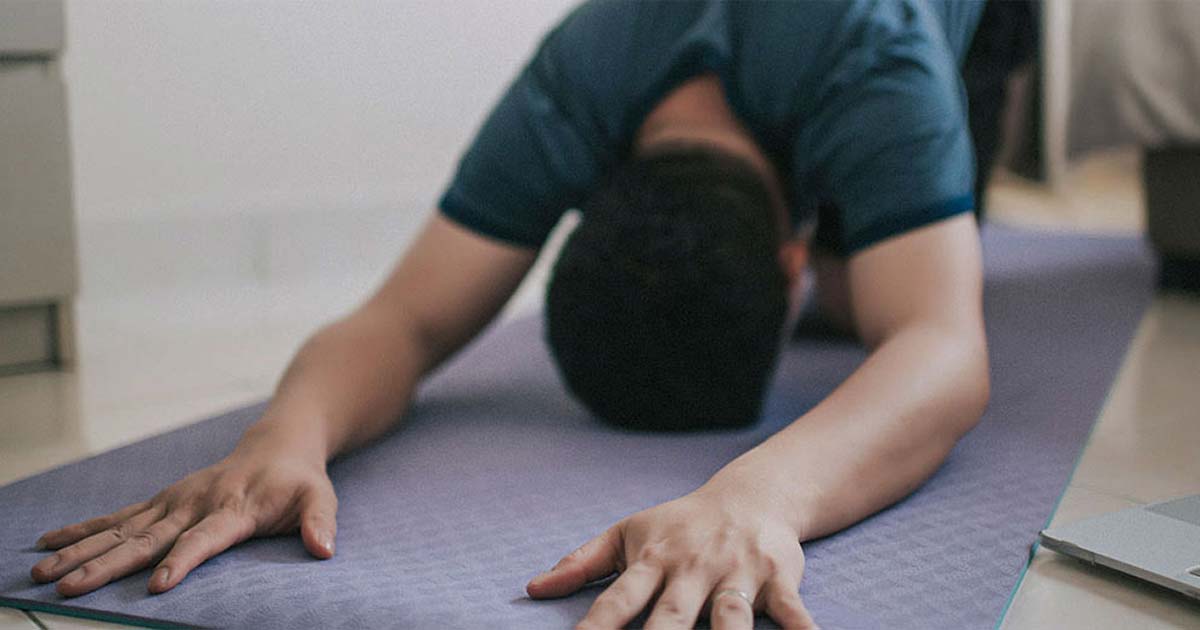
Advice to improve your movement, fitness, and overall health from the #1 in orthopedics in the U.S.
5 Things You Should Know about Sleep and Low Back Pain
What’s the best sleep position for low back pain? How much does your mattress matter? Dr. Robert Griffin, a spine specialist at HSS, offers up expert answers.
Advice to improve your movement, fitness, and overall health from the #1 in orthopedics in the U.S.
It's hard to sleep with any kind of pain. But back pain in particular can make it very difficult to get a good night's rest. That's because your back is more sensitive to your positioning than other parts of the body, says HSS spine specialist Robert Griffin, MD, PhD.

"During the day, people are able to move around and reposition in ways that can help relieve back pain," he explains. "At night, it's hard to keep repositioning while also getting the restful sleep you need."
But just because back pain is getting in the way of your slumber doesn't mean you need to take it lying down. Dr. Griffin offers up five things to know that could help you get a more restorative night's sleep, free from low back pain.
1. There is no one sleep position that works for everyone.
In everyday life, the best position for the spine is usually a relatively neutral one, meaning you're not bent too far forward or backward.
Sleeping flat on your back is traditionally thought to be the best sleep position for the spine "because, in theory, it evens out the distribution of pressure across the back," says Dr. Griffin. "In other words, it's easier to maintain a neutral position when you're laying down flat versus when you're face down or on your side." But whether that's true or beneficial hasn't been scientifically proven.
That said, you might just need to try different things to see what works for you. "Back pain is very person-specific," says Dr. Griffin. "There are as many ‘best' sleeping positions for low back pain as there are people with back pain."
2. Midsection support can help stomach sleepers.
There is no medical evidence that shows that sleeping on your stomach is a problem. If your habit is to sleep on your stomach but you have back pain, you may feel more comfortable if you add a small, flat pillow under your lower belly or hips. "When you're sleeping on your stomach, your spine may sag from its neutral position," Dr. Griffin explains. "Just a small amount of support in the midsection can help prevent that."
Stomach sleepers may also be more comfortable with a softer or flatter pillow under their head to help maintain the spine's alignment.
3. Side sleepers need taller pillows (but not too tall).
Pillow choice can also make a big difference for side sleepers with low back pain. "Side sleepers will typically need a taller pillow to help maintain a neutral spine position in the neck and upper back," says Dr. Griffin.
If you're a side sleeper having trouble with low back pain, you might also feel more comfortable positioning a small pillow between your knees to help even out your pelvis.
4. Your mattress matters.
In general, a medium-firm mattress – not very hard or very soft – is probably better for people with back pain. "I tend to recommend that people try out a mattress first for a decent length of time whenever possible," says Dr. Griffin. "If you have the sensation that your low back is sinking below your shoulders and your feet, that's a sign that the mattress is too soft for you. This is especially true if you lie on your stomach because then you'll be bowing into the mattress."
On the other hand, a too-firm mattress that prevents any sinking can place too much stress on your pressure points, which can cause pain. "Choosing the right mattress is really about finding that balance between maintaining comfortable spine alignment while also taking the pressure off your pressure points," he says.
5. Medical professionals can help.
If you have back pain that's preventing you from sleeping, doing your job or carrying out other daily activities, Dr. Griffin recommends seeking help from a medical professional. You may wish to consult both a spine specialist as well as a primary care doctor to rule out other medical conditions.
Don't worry too much if you have back pain for a day or two that you can deal with by taking an-over-the-counter pain reliever. But most drugstore medications are not particularly reliable at eliminating back pain. Plus they have negative side effects that add up more quickly than you might think, so don't rely on them for too long.
Published 12/10/2020


